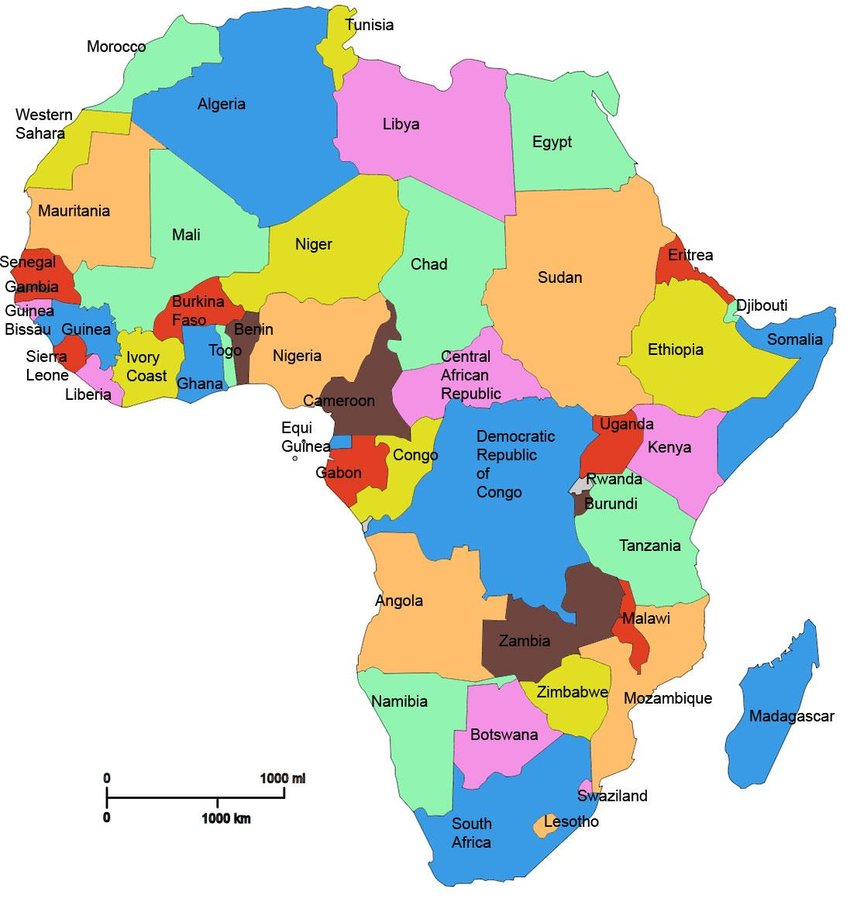One of the factors that have impeded intra-African trade and held it to its embarrassingly low level has been the difficulties experienced by parties involved in such trading relationships. Chief among these are the challenges that business people experience when they want to make payments to businesses located in other countries within the continent.
The problem is often hinged in part on the lack of convertibility of African currencies, despite the existence of about 44 different currencies on the continent, and the demand by many traders to be paid in foreign currencies, especially the dollar. This preference for third-party currencies in African transactions, to say the least, has weakened the continent’s trading system and its currencies.
- ‘Inflation, insecurity making life tough for Nigerians’
- Is Nigeria’s economy in better shape than in 2015 as claimed by President Buhari?
This was one of the reasons behind the scepticism expressed by many people over the idea of a continent-wide trading block, which eventually metamorphosed into the African Continental Free Trade Area (AfCFTA).
Today, that impediment is being addressed, as a system aimed at ameliorating the above challenges has been introduced into Africa’s financial system. This is the Pan-African Payment and Settlement System (PAPSS). It is a creation of the African Export-Import Bank (Afreximbank) designed to simplify intra-African trades through the settlement of transactions in local currencies on the heels of the takeoff of the AfCFTA.
This is a welcome development. It is clear that without such a system put in place, the dream of raising intra-African trade from its current low level of between 13 per cent and 18 per cent will remain a mirage. While Africa records such a low intra-continental trade level, Asia and Europe, for instance, are said to have raised theirs to as high as 59 per cent and 69 per cent, respectively.
Clearly, without this project, African producers will still prefer to sell their products to buyers from countries that have smooth trading systems with their respective countries. Similarly, importers from Africa will continue to prefer to deal with sellers from countries from which they can easily earn hard currencies.
This payment system will reverse all of these. It will relieve Africa of the importation of goods that can easily be produced at home. With it, African traders will be enabled to transact business in local currencies. That this system will be effective can be attested to by the fact that a pilot scheme that took off with $500m in West Africa already has 28 banks that have joined the platform. Similarly, there are reports that 24 other banks are on the verge of signing onto the platform.
The decision to commence this process on a pilot scheme is also commendable and shows the professionalism that its promoters are bringing to the project. As they have explained, the choice of the West African sub-region for the pilot is to subject the process to the complexities that characterise the rest of the continent, which, according to them, are found in this part of the continent. Such complexities include a multi-currency zone, multi-language, five English-speaking countries, and one Francophone area, with over 60 French regulators in that zone. It is logical to expect that once the pilot scheme is able to take care of such complexities, it would have prepared the ground for the implementation of the full-scale project.
Often, the success of a continental project such as this is vitiated by the noncommittal attitude of national governments. This must not be allowed to be the case with this project. The overriding consideration here must be the pursuit to raise the level of trading going on among African nations.
This goal is one with great multiplier effects that include promoting industrial growth, economic diversification and specialisation, job creation and improved well-being of the average African. Since trade is still unarguably one of the means of raising prosperity among nations and given that in trading relationships all parties are potential beneficiaries, this impetus to raise the level of trading among African nations must be encouraged. Therefore, let each government on the continent render to the PAPASS all necessary assistance it needs to succeed. Funding is critical and we expect the leaders to fashion a way to make financial contributions toward this. Indeed, a great motivation for African nations to show commitment to PAPASS must be the current events happening in Ukraine and Russia. The war raging between the two countries has led to significant disruptions in the global supply chains of both industrial and consumer goods. It has, for instance, raised the spectre of food insecurity that now threatens the lives of millions of people across the world, including Africa.
Consequently, countries are reassessing their trade policies, partnerships and alignments. They are reengaging with parts of the world in efforts to discover markets that best serve their interests in the context of the new global realities.
Africa should do the same. For Nigeria, the stakes are even much higher in the evolving scenarios. The country has, one way or the other, become the fulcrum of African trade. From the nation’s abundant natural resources such as oil and gas to agricultural commodities and industrial products, Nigeria has the potential to meet the requirements of many countries in Africa. For this reason, Nigeria should be at the forefront of the countries that want this payment system to succeed.

 Join Daily Trust WhatsApp Community For Quick Access To News and Happenings Around You.
Join Daily Trust WhatsApp Community For Quick Access To News and Happenings Around You.


